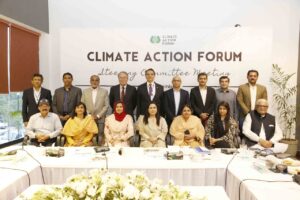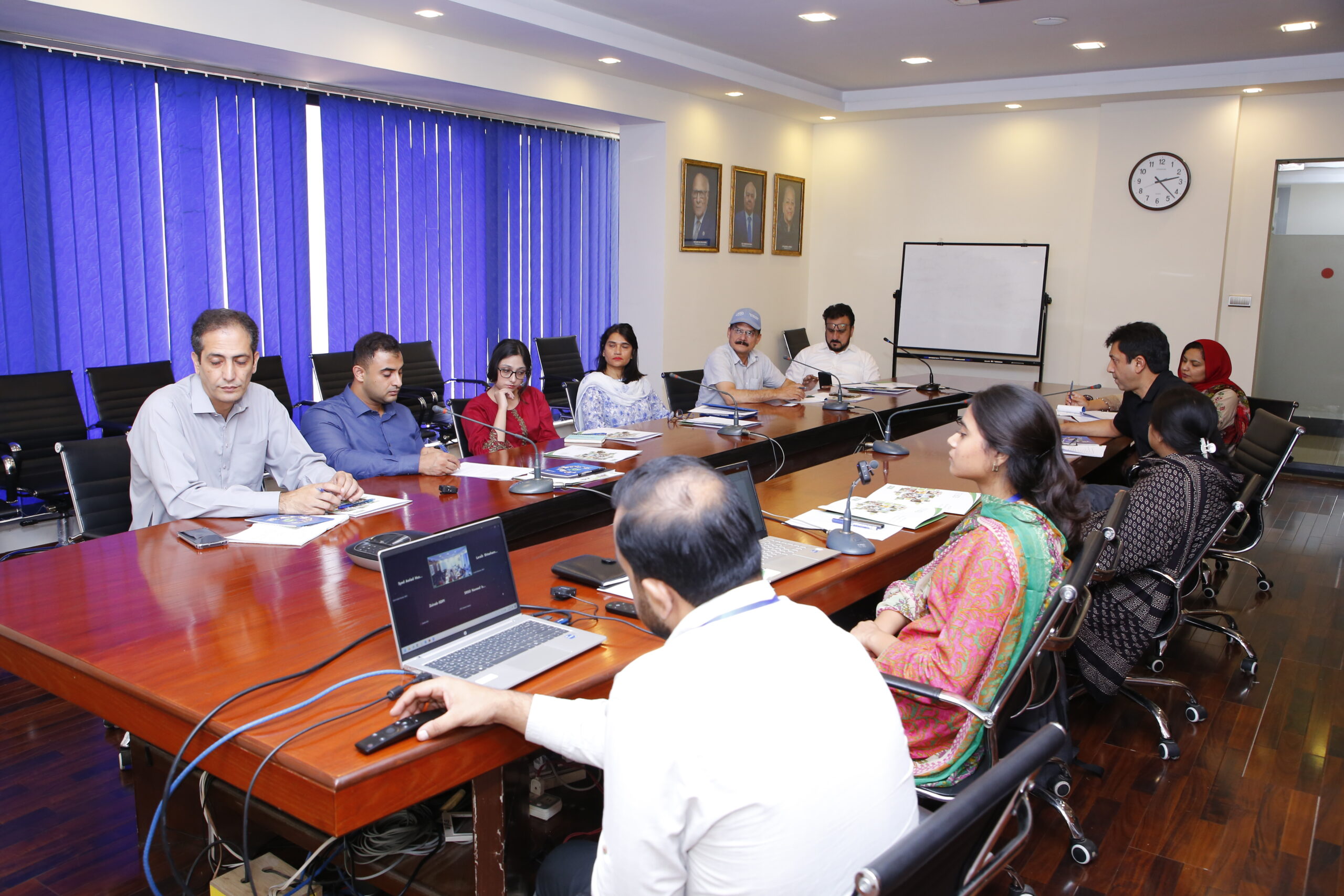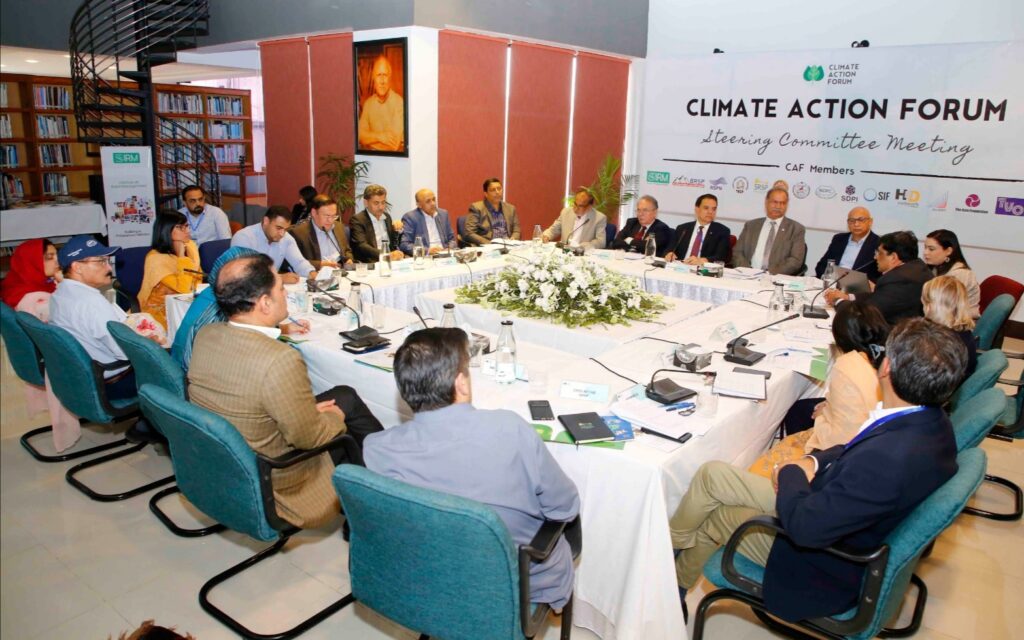
Pakistan, as a developing country highly vulnerable to the impacts of climate change, faces significant challenges exacerbating existing socio-economic vulnerabilities and impacting millions of lives. The Pakistan Climate Change Act (2017) and the National Climate Change Policy (2021) highlight the country’s commitment to addressing these challenges, yet effective implementation remains hindered by inadequate institutional capacities, limited resources, and fragmented efforts.
Building resilience against climate change requires concerted efforts from diverse stakeholders, including governmental bodies, civil society organizations, the private sector, and academia. Against this backdrop, a collaborative approach to climate action is critical in Pakistan, and therefore, Climate Action Form (CAF) intends to serve as a multistakeholder platform that aims to tenaciously work for climate action in Pakistan through strengthening capacities, resource mobilization, and promoting advocacy at the national & global level. The presence of each organization in the forum reflects a pivotal standing due to their specialized expertise and extensive outreach across the country.
The Rural Support Programs (RSPs) effectively address concerns and engage with rural communities in nearly every district of Pakistan. Not-for-Profit Organizations (NPOs), International and National Non-Governmental Organizations (INGOs/NGOs) contribute their in-depth knowledge in areas such as policy, management, energy and others. Meanwhile, government entities provide crucial regulatory oversight and implementation support, ensuring a well-rounded and effective approach to climate action aligned with national demands/pledges. This prospect of collaboration not only provides comprehensive coverage across Pakistan but also presents an opportunity to make a meaningful impact in the most neglected yet severely affected areas of the country.
To achieve this, CAF aims to synergize a diverse coalition of stakeholders, including governmental bodies, non-governmental organizations, and research institutions, creating a unified platform that bridges existing gaps in current climate action strategies. By driving tangible, measurable outcomes, CAF will support Pakistan’s commitment to climate action as articulated in national climate policies and NDCs. Moreover, through fostering collaboration and resource mobilization, CAF will enhance Pakistan’s climate action landscape and strengthen its position in international climate negotiations i.e. COPs.
CAF Members: IRM, RSPN, BRSP, SRSP, SRSO, TRDP, PPAF, PMD, NCPC, HRDN, TVO, ALIGHT, SDPI, SIF and TAF.




